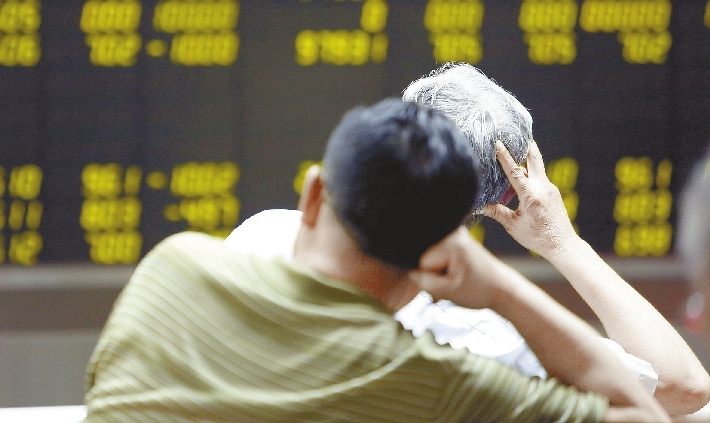
AS China’s share market was cratering at the end of 2018, Liu Yue bet almost his entire fund on just two stocks. It could have ended in tears, but he knew his firm had a once-in-a-lifetime opportunity to snare the ultimate prize for a hedge fund in China — being crowned champion of the year. His bet paid off and Guangdong Chaokin Investment Co. has since been swamped with investor inquiries. Many of his peers haven’t been as lucky. In a market where hedge funds number close to 9,000, there’s increasingly only one good way to stand out: produce stunning returns. But there’s a problem with this approach — one-way bets on stocks can go sour just as quickly as share prices soar. It’s led to a dramatic and abrupt end for some of China’s most-feted hedge fund managers. “The ‘curse of the champion’ does exist,” said Liu Youhua, an analyst at Shenzhen PaiPaiWang Investment & Management Co., referring to the accelerating phenomenon of top-performing funds ending up on the scrap heap. “And it’s set to continue.” Rising Trend Capital Management is one of the latest casualties. The Shenzhen-based hedge fund run by Huang Ping shot to fame in 2013 with a 120 percent return, before capping that with an even better 301 percent gain in 2014 (making it the only Chinese hedge fund to clinch the championship title twice). Its fortunes turned in 2016 after it bet on Dandong Xintai Electric Co. just as the power-transmission-equipment maker was near delisting. Rising Trend recorded losses of around 200 million yuan (US$29 million) on Xintai Electric that year alone and Huang, in an unrelated matter, was fined 62 million yuan for manipulating six stocks in 2015 via 37 different accounts. The hedge fund had its license revoked permanently in May. Amid this year’s stock market rally, sky-high returns are back. A total of 56 hedge funds tracked by PaiPaiWang more than doubled returns in the first half, with a little known manager called Grapefruit Investment boasting the highest gain, at 391 percent. It’s hard to repeat industry-beating performance anywhere in the world but Chinese hedge funds, especially smaller ones, face more incentives than most to “go out on a limb,” said Yan Hong, head of the China Hedge Fund Research Center in Shanghai. A base of mostly retail investors, many of whom are chasing returns without paying much attention to risk, only fuels that desire to stand out, he said. Regulators are starting to take notice. The Asset Management Association of China, the body responsible for hedge fund registrations, has this year canceled the registration status of more than 300 private fund management firms on the grounds they’ve become “out of touch” or that they’ve failed to submit required legal opinions after experiencing “abnormal operating conditions.” The China Securities Regulatory Commission (CSRC), the regulator, has also been taking more of an interest. Of the 453 private funds it inspected in 2018, almost one third were found to have violations ranging from illegal fundraising to misuse of investors’ money. The desire to shine isn’t so surprising considering the nature of China’s hedge fund market. The sector is beset by smaller players, often run by self-taught operators. Funds’ assets under management average just 264 million yuan, according to AMAC data. However, more than half run strategies with less than 100 million yuan, the minimum needed to sustain operations unless performance fees are high, Yan said. Capital is also readily available. Rising Trend, for example, raised 240 million yuan in 10 minutes in November 2014, completing a product sale that was originally scheduled for three days in just one, according to local media reports. Top performers in China have also routinely generated much higher returns than their global peers, beating them every year in the five years through 2018 by an average 156 percentage points, calculations based on data from Preqin Ltd. and PaiPaiWang that exclude funds investing in cryptocurrencies show. But those gains can be short-lived: Of the top 20 percent of hedge funds in annual rankings for the three years from 2014 through 2016, more than half ended up among the bottom 40 percent the following year. Rankings have been relatively more stable in 2017 and 2018 because the market has stayed largely bearish. “In pursuing very high returns, the risk inevitably goes very high as well,” rendering performance unstable, PaiPaiWang’s Liu said. (SD-Agencies) | 
